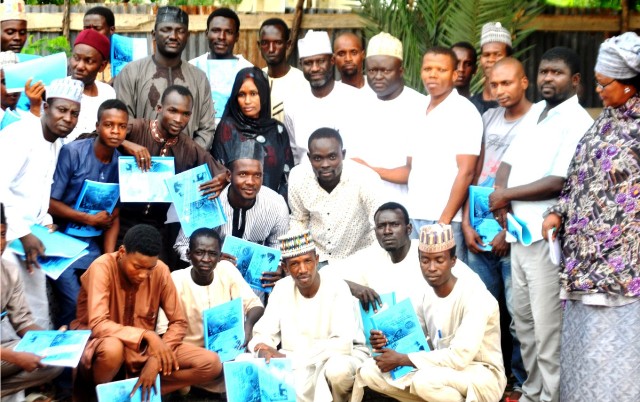Business
Recession: Don Urges Improved Welfare Package

Against the backdrop of last Tuesday’s announcement of Nigeria’s exit from recession, a university lecturer, Dr Tolani Hassan, has called for improved welfare package for the citizenry.
Hassan, an economist and Senior Lecturer at the College of Management and Social Sciences, Tai Solarin University of Education (TASUED), Ijebu-Ode, Ogun, made the call in an interview with newsmen last Wednesday.
“It’s a marginal growth of 0.55 per cent of the national Gross Domestic Product, which is more or less insignificant when you look at the larger picture.
“Though it is good news that we are out of recession but my own concern is this: how does this translate to a better welfare package for the citizenry?
“To have the figures on paper is one thing, and translating it to better living for the people is another.
“In Nigeria today, people are no longer interested in statistical figures, but are more interested in how they will meet their domestic needs.
“It’s good we are saying we are out of recession, but we want it to be practicable,” Hassan said.
He urged the Federal Government to seek pragmatic ways of utilising the recession news toward giving Nigerians cause for cheer.
Hassan said the government could start by honouring previous agreements it entered into with civil society organisations to fast track socioeconomic development.
“The Academic Staff Union of Universities is on strike, resident doctors are on strike, other joint labour unions are also threatening to go on strike.
“This says a lot about the present state of the economy.
“It is one thing to make an agreement and another to implement the terms of the agreement”, Hassan said.
“If the government wants to show us that they are sincere and sensitive to the plight of Nigerians, let them honour agreements.
“Now they say we are out of recession, but people are still lamenting over lack of food and inflation rate.
“Price of commodities have not dropped and salaries aren’t being paid as and when due, and in some cases, not paid at all.
“So, the question is this: what has changed, pre and post recession? How the figures will have impact on our lives is our utmost priority,” Hassan said.
Transport
Automated Points Concession : FAAN Workers Gave 72hrs To Revise Decisions In PH

Transport
FAAN Announces Pick-Up Points for Go-Cashless Cards

Business
Fidelity Bank To Empower Women With Sustainable Entrepreneurship Skills, HAP2.0
-
Politics4 days ago
2027: NIGERIANS FAULT INEC ON DIGITAL MEMBERSHIP REGISTER DIRECTIVE
-

 Environment4 days ago
Environment4 days agoLAWMA Director Says Sweeping Reforms Have Improved Waste Collection
-
Politics4 days ago
LP Crisis: Ex-NWC Member Dumps Dumps Abure Faction
-

 Politics4 days ago
Politics4 days agoUmahi Dismisses Allegations On Social Media, Insists On Projects Delivery
-

 Sports4 days ago
Sports4 days agoAbia Not Sure To Secure continental Ticket
-
Politics4 days ago
NATASHA ELECTRIC VEHICLES INITIATIVE IN KOGI CENTRAL
-
Sports4 days ago
La Liga: Yamal Records First Career Hat-trick
-

 Sports4 days ago
Sports4 days agoPSG Extend Lead In Ligue 1

